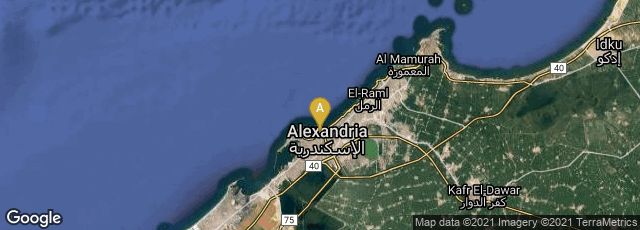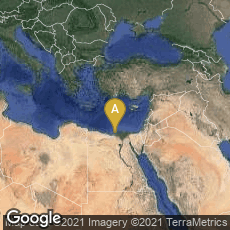

A: Alexandria Governorate, Egypt
At the Bibliotheca Alexandrina on November 1, 2003 Umberto Eco delivered a lecture entitled Vegetal and Mineral Memory: The Future of Books.
I quote from the beginning of the lecture:
"WE HAVE THREE TYPES OF MEMORY. The first one is organic, which is the memory made of flesh and blood and the one administrated by our brain. The second is mineral, and in this sense mankind has known two kinds of mineral memory: millennia ago, this was the memory represented by clay tablets and obelisks, pretty well known in this country, on which people carved their texts.
"However, this second type is also the electronic memory of today's computers, based upon silicon. We have also known another kind of memory, the vegetal one, the one represented by the first papyruses, again well known in this country, and then on books, made of paper. Let me disregard the fact that at a certain moment the vellum of the first codices were of an organic origin, and the fact that the first paper was made with rags and not with wood. Let me speak for the sake of simplicity of vegetal memory in order to designate books.
"This place has been in the past and will be in the future devoted to the conservation of books; thus, it is and will be a temple of vegetal memory. Libraries, over the centuries, have been the most important way of keeping our collective wisdom. They were and still are a sort of universal brain where we can retrieve what we have forgotten and what we still do not know.
"If you will allow me to use such a metaphor, a library is the best possible imitation, by human beings, of a divine mind, where the whole universe is viewed and understood at the same time. A person able to store in his or her mind the information provided by a great library would emulate in some way the mind of God. In other words, we have invented libraries because we know that we do not have divine powers, but we try to do our best to imitate them. To build, or better to rebuild, today one of the greatest libraries of the world might sound like a challenge, or a provocation. It happens frequently that in newspaper articles or academic papers some authors, facing the new computer and internet era, speak of the possible "death of books". However, if books are to disappear, as did the obelisks or the clay tablets of ancient civilisations, this would not be a good reason to abolish libraries. On the contrary, they should survive as museums conserving the finds of the past, in the same way as we conserve the Rosetta Stone in a museum because we are no longer accustomed to carving our documents on mineral surfaces.
"Yet, my praise for libraries will be a little more optimistic. I belong to the people who still believe that printed books have a future and that all fears à propos of their disappearance are only the last example of other fears, or of milleniaristic terrors about the end of something, the world included...."